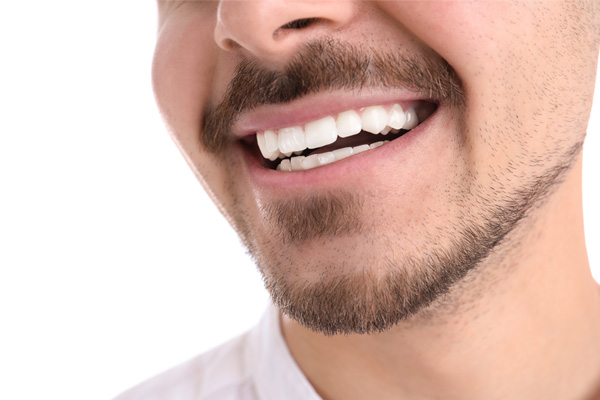How a Laser Dentist Can Treat Cavities

A laser dentist uses innovative dental technology in the form of dental lasers (lights) to provide a less-invasive and more precise treatment, reducing the need for sedation and allowing for safe and effective procedures. Among other things, laser dentists can treat common cavities.
Information from a laser dentist about treating cavities
Laser dentistry is a relatively new concept for many patients, and laser dentists receive many questions about how the technology can be used to treat dental cavities and address issues with soft tissue. The following is a review of how laser dentistry works for cavities.
What is laser dentistry for cavity fillings?
Laser dentistry for cavity fillings involves the use of light beams from special dental lasers to target and remove the decayed portion of a tooth. The lasers can target the decay without affecting the healthy part of the tooth, providing an often more precise process than is the case with traditional fillings. Once the laser effectively removes the decay, the cavity can be filled and the tooth can be sealed, completing the restoration.
The benefits of laser dentistry for treating cavities
Since laser dentistry to treat cavities is less invasive and does not cause as much discomfort as traditional dentistry, most patients do not require sedation. The laser used for the procedure is also quiet, while a drill can be loud and intimidating.
Laser dental fillings vs. traditional fillings
Traditional dental fillings involve the use of dental drills and other dental instruments to physically remove the decay. This can cause discomfort and lead to the removal of healthy dental enamel, creating a larger cavity that needs to be filled. Laser dental fillings are better at only removing the decay and causing little, if any, discomfort for the patient.
When a laser dentist might recommend treating cavities
A laser dentist first conducts an oral examination and may order dental X-rays to determine if the patient has any cavities or other oral health concerns that need to be addressed. If there are mild to moderate cavities, laser dental fillings may be recommended, but a root canal may be necessary for more severe instances of dental decay.
A focus on preventing dental cavities for the long term
The long-term focus for laser dentists is helping patients prevent cavities through regular check-ups and cleaning visits and good oral hygiene between dental visits. For weakened enamel, dentists may provide fluoride treatment to patients to strengthen enamel and help prevent cavities.
Additional insights to know about laser dentistry for acidity treatment
Here are several more insights into laser dentistry to help patients gain a better understanding of what it is and its benefits before their next visit.
Laser dentistry minimizes bleeding during dental procedures
Bleeding often occurs during dental procedures due to the dental instruments that are used. Laser dentistry is a minimally invasive procedure that largely replaces the need for dental tools such as scalpels. There are also usually fewer incisions and stitches involved with laser dentistry. Subsequently, this minimizes the bleeding that occurs during cavity treatment procedures (and other types of treatment).
Laser dentistry can be used for more than cavity treatment
From laser root canal procedures to laser gum contouring, many procedures can be improved with laser dentistry. For many patients, this takes away the fear of visiting the dentist because there are now less-invasive options available for procedures that have traditionally been more invasive.
Laser dentistry is similarly priced to other procedures
Due to its innovation, many patients assume that laser dentistry is more expensive. However, when it is used for diagnosing and treating cavities, laser dentistry is similarly priced to more traditional procedures.
The FDA approved laser dentistry usage in 1990
It may seem like a relatively new concept, but laser dentistry has been practiced safely for decades. Since the FDA deemed laser dentistry safe in 1990, laser dentistry treatments (especially for cavities) have continually gained in popularity, and they are now safely practiced by dentists across the U.S. and abroad.
Learn more about cavity fillings from our laser dentist
If you have signs of a cavity and want to find out more about laser dentistry for cavity fillings, contact our office today to schedule a visit. Our general dentistry team offers laser dentistry services to provide patients with less-invasive and more effective treatments for cavities and other common oral health concerns. We would be happy to answer any questions that you may have.
Are you considering laser dentistry in the Troy area? Get more information at https://www.thanasasdds.com.
Check out what others are saying about our dental services on Yelp: Laser Dentistry in Troy, MI.
Recent Posts
Laser dentistry has helped a lot of people. Thanks to advances in technology, medical professionals rely on laser treatments for all kinds of issues. Some examples include the removal of hair, spider veins, and polyps. Now, dentists rely on it too.This form of dentistry is a minimally invasive method of performing gum surgery. However, dentists…
Laser dentistry can treat various dental problems. Lasers deliver energy in the form of light to act as a cutting instrument or to vaporize tissue. One of the most common uses of lasers in dentistry is laser gum surgery. Laser gum surgery can prevent and improve gum disease.According to Crest, about three out of four…
Laser teeth whitening can bring back the shine in your smile. Even so, this process can affect tooth-colored dental restorations. Some dental patients get restorations first. After some time, they decide to get teeth-whitening treatments too. Knowing how laser teeth whitening affects tooth-colored restorations is a practical first step. Here are the details to consider.Laser…
Laser dentistry is still in its infancy. But it has transformed the dental industry and changed the lives of many people with gum disease. Gum disease is a serious gum infection that destroys the gum and other structures that hold your teeth securely in place. These structures include the jawbone and the periodontal ligaments (collective…


